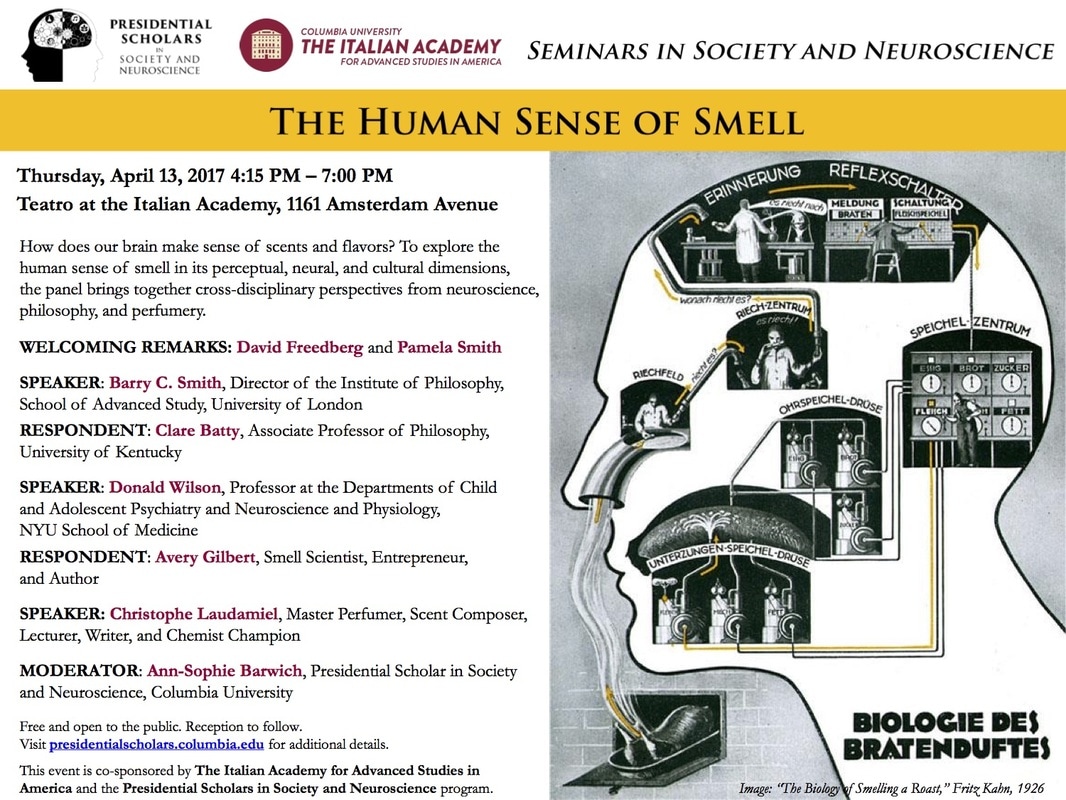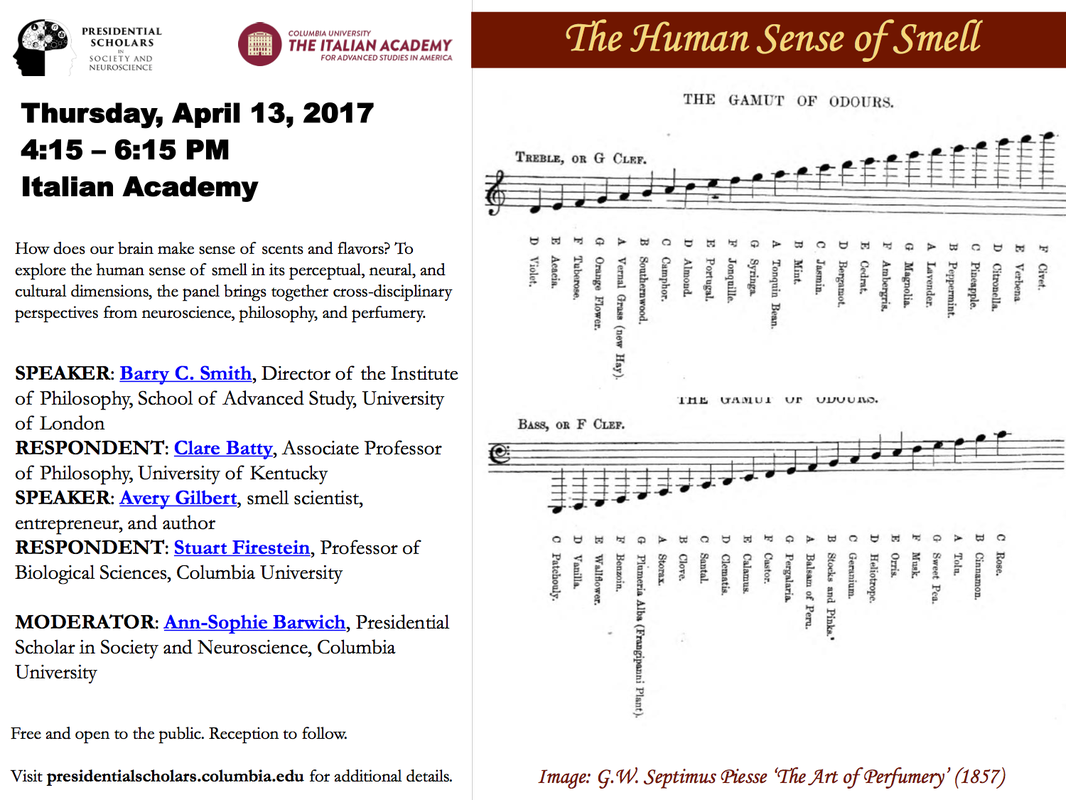|
The Human Sense of Smell – Seminars in Society and Neuroscience
Columbia University in the City of New York Date: April 13, 4:15 – 7:00 pm Location: Teatro at the Italian Academy, Columbia University, 1161 Amsterdam Avenue, New York, NY Program: 4.15 – 4.30 General Introduction: David Freedberg & Pamela Smith (Columbia University) 4.30 – 4.35 Introduction of Panel & Topic: Ann-Sophie Barwich (Columbia University) 4.35 – 5.00 Barry Smith (School of Advanced Study, University of London, Philosophy) 5.00 – 5.15 Clare Batty (University of Kentucky, Philosophy) 5.15 – 5.40 Donald Wilson (NYU, Neuroscience) 5.40 – 5.55 Avery Gilbert (Smell Scientist and Author) 6.00 – 6.15 Christophe Laudamiel (DreamAir, Perfumer) 6.15 – 7.00 Panel Discussion Free and open to the public. Reception to follow. For more information, please visit: http://scienceandsociety.columbia.edu/cssevent/human-sense-smell-seminar-society-neuroscience/ There are many myths about the human sense of smell. Most persistent are the views that our olfactory abilities are underdeveloped, declining, and lacking cognitive significance. Nothing could be further from the truth. Historically, the spice trade and the ongoing hunt for new flavors have shaped our modern socio-economic landscape. Today, 28 billion dollars are generated annually with fragrance products in the US alone (ranging from perfumes to scented trash bags). Many of these are deeply entwined with hygiene products responsible for improvements in public health. And over the past thirty years, neuroscientific interest in odor perception has been on a steady rise. Central to this development is the dominant role of smell in cross-modal processes of flavor perception. The crucial question here remains unresolved, however: How does our brain make sense of scents and flavors? To explore the human sense of smell in its perceptual, neural, and cultural dimensions, the panel brings together cross-disciplinary perspectives from neuroscience, philosophy, and perfumery.
0 Comments
There are many myths about the human sense of smell. Most persistent are the views that our olfactory abilities are underdeveloped, declining, and lacking cognitive significance. Nothing could be further from the truth. Historically, the spice trade and the ongoing hunt for new flavors have shaped our modern socio-economic landscape. Today, 28 billion dollars are generated annually with fragrance products in the US alone (ranging from perfumes to scented trash bags). Many of these are deeply entwined with hygiene products responsible for improvements in public health. And over the past thirty years, neuroscientific interest in odor perception has been on a steady rise. Central to this development is the dominant role of smell in cross-modal processes of flavor perception. The crucial question here remains unresolved, however: How does our brain make sense of scents and flavors? To explore the human sense of smell in its perceptual, neural, and cultural dimensions, the panel brings together cross-disciplinary perspectives from neuroscience, philosophy, and perfumery. |
AuthorAnn-Sophie Barwich Archives
July 2024
Categories |


 RSS Feed
RSS Feed